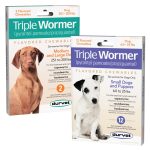When Can Puppies Safely Enjoy Mush? Find Out Now And Ensure Their Nutritional Needs!
When Can Puppies Eat Mush: A Comprehensive Guide
Introduction
Hello Puppies Lover,
1 Picture Gallery: When Can Puppies Safely Enjoy Mush? Find Out Now And Ensure Their Nutritional Needs!

Welcome to our comprehensive guide on when puppies can eat mush. As a dog lover, we understand your eagerness to provide the best nutrition for your furry friend. In this article, we will explore the appropriate age for introducing mush into a puppy’s diet, the benefits and drawbacks of this feeding method, and provide answers to frequently asked questions. So, let’s dive in and learn all about when puppies can eat mush!
What is mush?

Image Source: breedingbusiness.com
Mush is a soft, semi-solid food that is often given to puppies during the weaning process. It is typically made by mixing dry puppy food with warm water or puppy formula to create a porridge-like consistency. The mush helps transition puppies from a milk-only diet to solid foods, providing them with the necessary nutrients for growth and development.
Who should feed puppies mush?
Puppies should be introduced to mush by their breeders or owners who are following a responsible weaning process. Breeders play a crucial role in ensuring that puppies are introduced to solid foods at the appropriate time and are provided with a balanced diet. If you have recently adopted a puppy, consult with the breeder or a veterinarian to determine when to start feeding your puppy mush.
When can puppies eat mush?
The ideal time to introduce mush into a puppy’s diet is between three to four weeks of age. At this stage, puppies begin to develop teeth and show an interest in exploring solid foods. However, it is essential to monitor their response and adjust the consistency of the mush accordingly. Gradually decrease the amount of liquid added to the mush to encourage the puppies to chew and swallow the food.
Where to get mush for puppies?
Mush for puppies can be easily prepared at home using high-quality dry puppy food and warm water or puppy formula. Alternatively, you can find commercial puppy mush products available in pet stores or online. When purchasing commercial products, ensure that they are specifically formulated for puppies and meet the nutritional requirements for their age and breed.
Why is mush beneficial for puppies?
Mush offers several benefits for puppies during the weaning process. Firstly, it provides a smooth transition from a milk-only diet to solid foods, allowing puppies to develop their chewing and swallowing abilities. Secondly, mush is easily digestible, reducing the risk of gastrointestinal issues. Additionally, the mush can be enriched with essential nutrients, vitamins, and minerals to support healthy growth and development.
How to prepare mush for puppies?
To prepare mush for puppies, start by selecting a high-quality dry puppy food that meets their nutritional needs. Gradually introduce the dry food by mixing it with warm water or puppy formula. Begin with a watery consistency and gradually decrease the amount of liquid as the puppies adjust to chewing and swallowing. Monitor their response and adjust the consistency as needed.
Advantages and Disadvantages of feeding puppies mush
Advantages:
1. Smooth transition to solid foods: Mush helps puppies transition from a milk-only diet to solid foods, promoting healthy development.
2. Easy digestion: The mush’s soft texture makes it easier for puppies to digest, reducing the risk of gastrointestinal issues.
3. Nutritional enrichment: Mush can be fortified with essential nutrients, vitamins, and minerals to support optimal growth and development in puppies.
Disadvantages:
1. Potential choking hazard: Puppies may not chew the mush properly, increasing the risk of choking or gagging.
2. Limited dental development: Puppies may rely too heavily on mush, which can delay the development of their chewing and dental abilities.
3. Dependency on soft foods: Over-reliance on mush may make it challenging for puppies to transition to a fully solid food diet in the future.
Frequently Asked Questions (FAQs)
1. Can I introduce mush to my puppy earlier than three weeks of age?
No, it is not recommended to introduce mush to puppies before three weeks of age. At this stage, their digestive systems are not yet fully developed to handle solid foods.
2. What if my puppy refuses to eat mush?
If your puppy refuses to eat mush, consult with a veterinarian to determine the possible reasons. It could be due to teething discomfort or an underlying health issue that needs to be addressed.
3. Can I feed adult dog food mush to puppies?
No, puppies have different nutritional requirements than adult dogs. It is crucial to feed them a diet specifically formulated for their age and breed to ensure optimal growth and development.
4. How often should I feed my puppy mush?
Generally, puppies should be fed mush three to four times a day. However, consult with your veterinarian for personalized feeding recommendations based on your puppy’s age, breed, and overall health.
5. When should I transition my puppy to solid foods?
Puppies can be gradually transitioned to fully solid foods between six to eight weeks of age. Monitor their response and consult with a veterinarian for guidance during this transition period.
Conclusion
Now that you have a comprehensive understanding of when puppies can eat mush, you can provide the best nutrition for your furry friend. Remember to introduce mush gradually, monitor your puppy’s response, and consult with a veterinarian for personalized advice. By following the appropriate weaning process, you can ensure that your puppy grows up healthy and strong. Happy feeding!
Final Remarks
Disclaimer: The information provided in this article is for educational purposes only and should not replace professional veterinary advice. Always consult with a veterinarian for personalized recommendations regarding your puppy’s diet and health.
This post topic: Puppies



